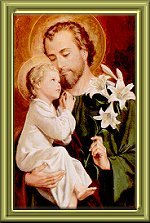

Theological
and Pastoral Formation
National Conference of Catholic Bishops
along with the
Archdiocese of Los Angeles, California
The Diaconate Formation Program for the Archdiocese of Los Angeles has three main components, all of which are interrelated. The THEOLOGICAL dimension of the program helps the deacon candidates become knowledgeable and reliable witnesses of the faith and spokespersons for the Church's teaching. In keeping with the guidelines for diaconate formation as established by the National Conference of Catholic Bishops, our program includes the following with regard to theological formation: the study of Sacred Scriptures, Theological Foundations, Christology, Ecclesiology, Ecumenism, Church History, Sacraments, Catholic Social Teaching, Liturgy, Canon Law, and Christian Morality (in both its personal and social dimensions). Since an important objective of the formation program is to prepare candidates to be effective in pastoral ministry, this theological component is very much oriented toward giving those in formation the appreciation and knowledge of the faith which is needed to carry out the ministry of service, Word, and sacrament.
Our formation program also has a strong PASTORAL focus. During the years of formation, candidates are involved in a variety of ministries which help them become more aware of the needs and mission of the local Church. They Experience hospital ministry, outreach to the homeless, ministry to the imprisoned, family life ministry, and much more. Theological reflection and ministry assessments are important dimensions of the candidates' pastoral formation. Also, there are a variety of subjects to help participants become skilled in pastoral practice. Among these subjects are the following:
- Liturgical Practice - the administration of the sacraments of Baptism and Marriage, Funeral Rites, the proclamation of the Word, and the deacon's role in assisting at the Eucharist.
- Homiletics - preaching at the Eucharist, at Baptisms and Marriages, and in other liturgical settings.
- Christian Social Service - social awareness, parish social ministry, direct assistance to the needy.
- Pastoral Care - introduction to pastoral counseling (grief ministry, communication and listening skills, referral needs, etc.).
Furthermore, throughout the years of formation, candidates become sensitized to the ethnic realities of the Archdiocese. In this regard the Office of Hispanic Ministry, the Office of Asian Pacific and Ethnic Groups, and the Office of African-American Ministry are of assistance.
The SPIRITUAL component of the formation program is designed to help integrate the theological and pastoral dimensions. In addition to their formal study of Scriptures, those in formation make use of a tool called The Reverent Approach to the Word of God to help them appreciate the living Word in their personal lives and in their faith community. Through their participation in the Eucharist, the Liturgy of the Hours, and prayer services, the candidates and their wives come to a fuller understanding and appreciation of the need to deepen their prayer life on all levels: personal, familial, communal, and liturgical. The academic curriculum includes the study of Spirituality and Prayer so that participants become more acquainted with the Catholic spiritual tradition. Those in formation are given the experience of the Ignatian Exercises as one means of further discerning their vocation to diaconal life and ministry. In order to help them in their endeavors to know themselves more fully and to live reflectively, the candidates and their wives are given the experience of participating in personal and relational growth programs such as Personality and Human Relations (PRH). As part of the curriculum, there is also an introduction to spiritual direction. Those in formation are strongly encouraged to seek a spiritual companion to assist them in their spiritual journey. In their four years of formation (ours was five years), the participants develop a strong sense of Christian community through shared Eucharist, shared prayer, shared work, shared meals and relaxation, and shared conversation.
The entire program follows an adult learning model which includes presentations, shared reflections, and group processes.
- An introduction to the Scriptures and to critical interpretation of the Bible: a theology of the Old Testament; the New Testament, especially the Gospels and Epistles; the relationship between Scripture and tradition; how to use the Scriptures in preaching, catechesis, counseling, etc.
- Introduction to and Theology of Hebrew Scriptures
- Study of the Psalms
- Study of New Testament
- Scriptures in Preaching - Homiletics
- Fundamental Theology; the sources, themes, and methods of theology; revelation, faith, and reason.
- Theological Formation
- Dogmatic Constitution on Divine Revelation - Vatican II Documents
- The faith of the Church: the mystery of God the Creator and Redeemer; Christology; Ecclesiology; the role of the Blessed Virgin Mary; Christian Anthropology; Sacraments and Liturgy, especially the Theology of Ministry.
- Christology
- Ecclesiology
- Sacraments
- Baptism, RCIA, Marriage
- Liturgy
- Role of Mary in the Church
- Christian Morality in both its personal and social dimensions.
- Introduction to Christian Morality - practical issues
- Methodology
- The Canon Law of the Church.
- Introduction to Canon Law
- Canon Law with regard to Baptism
- Canon Law with regard to Marriage
- The History of the Church.
- Church History
- Early, Middle Ages, Reformation, Modern Church
- Liturgical practice: the meaning of liturgy and symbol; the proper administration of the liturgical rites and devotions; the sacraments and sacramentals; proper and effective proclamation of the Word; and the deacon's role in assisting at the Eucharistic liturgy.
- Liturgy of the Hours
- Oral Interpretation: Proclaiming the Word of God
- Liturgy and Ritual
- A process for discerning the charisms and skills for homiletic proclamation of the Word. Although every deacon will proclaim the Word in a variety of situations, the public proclamation of the Word in homilies at Mass, in the administration of the sacraments, and in other liturgical rites is a particular and sacred skill. There should be practical exercises on effective preaching.
- Homiletics
- Guided Practicums
- Baptism & Marriage
- Reflections on Social Teachings
- Evening Prayer
- Thematic Homilies
- Courses on the principles of Christian social justice and their implementation' parish social ministry' skill in providing direct assistance to the needy in a respectful manner.
- Catholic Social Teaching
- Reflections of Church's Social Teaching
- Papal Encyclicals
- An introduction to psychology, with particular attention to the methods of counseling individuals and groups; recognition of the need for referral for professional attention.
- Grief Ministry
- Introduction to Care-giving
- Courses in sociology, community organizations, etc., with particular attention to applications in the local pastoral situation.
- Small Faith Communities
- Parish Field Education
- When it is anticipated that deacons e.g., will participate in the pastoral care of parishes or communities, the program should provide training in the necessary canonical, administrative and pastoral skills.
- Auxiliary programs, e.g. - Loyola/Marymount
- To assist the candidate, with the help of his spiritual director and those responsible for the program, in discerning whether or not he has a vocation to the diaconate.
- Ignatian Exercises
- One-on-one and group experiences with deacon team members
- Personal and Human Relations (PRH)
- Personal and Relational Development (PRD)
- Introduction to Spiritual Direction
- To deepen and cultivate his commitment to Christ and the Church.
- Eucharistic Celebration
- Prayer Services
- Study of Church History
- retreats
- To help him integrate his new ministerial commitment with his previous commitments to family and to work.
- Ministry Reflection and Assessment
- PRD
- Reverent Approach to the Word of God
- To strengthen the personal and ministerial charisms he has already demonstrated in his life.
- Reverent Approach to the Word of God
- Ministry Reflection and Assessment
- PRH
- PRD
- To develop the personal qualities and abilities that will be needed in his ministry.
- Ministry Reflection and Assessment
- Individual and Group Ministry projects
- PRH
- Myers-Briggs
- To help him grow in self- knowledge and to develop the habit of repentance and self-criticism in light of the Gospel and of his ministerial responsibilities.
- PRH
- Ignatian Exercises
- Spiritual Direction
- To deepen his prayer-life: personal, familial, communal, and liturgical.
- Experience of Spiritual Exercises of St. Ignatius
- Liturgy of the Hours
- Shared prayer
- Spiritual Direction
- Eucharistic Celebrations
- Reverent Approach to the Word of God
- To acquaint him with the Catholic spiritual tradition, especially as reflected in classic spiritual writings and in the examples of the saints, with contemporary developments in spirituality.
- Prayer and Spirituality
- Ignatian Exercises
- Selected Readings
- To prepare him for the challenges of spiritual leadership that his ministry will entail.
- PRD - Ministry Reflection and Assessment
- Group and individual ministerial experiences
- Care-giving
- Ministry to the sick
- Ministry to street people
- Detention ministry
- Family life
![]()